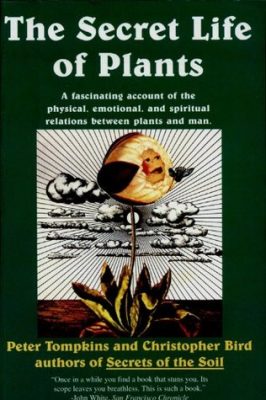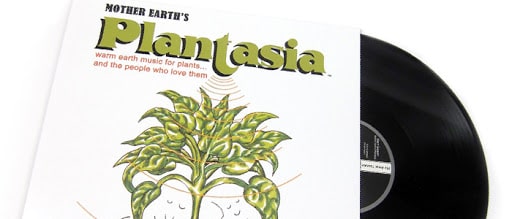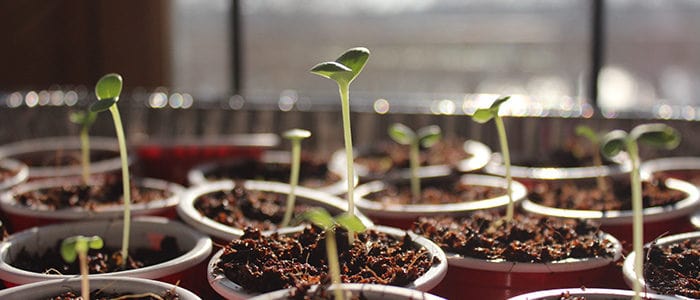Plants
Does Music Affect Plant Growth?
Do plants respond to music?
Do you believe that playing music to your plants helps them grow healthy? Is it real or not? If it is true, how do plants hear the music, and if they hear music, what kind of music do they prefer?
Studies and researches are being done to know whether or not this myth is a fact. While results and proofs are still uncertain about how plants respond to music, the ideas supporting it are interesting indeed.
Learn more about it and the origin of the idea here, and know what science says about it.
Origins of the Idea that Plants React on Music

The idea that music affects the growth of the plant may not surprise you anymore In fact, there was a book about it and it was written by Christopher Bird and Peter Tompkins and published in 1973. The book entitled, “The Secret Life of Plants” talked about the relationship of man and plants in terms of physical, emotional, and spiritual matters. Scientific studies, according to Bird and Tompkins, were conducted suggesting that music helps plants grow and that they have a specific level of intelligence to respond to humans.
In 1962, there was a study conducted by Dr. TC. Singh, the Head of Botany at Annamalia University. It was among the earliest studies conducted about how plants were affected by music. In his study, he played classical music to his balsam plants, and they grew 20% more than a group of balsam plants not exposed to the music. He also noted that the biomass increased by 72%. His crops were also exposed to loud raga music and he found them to yield an increase of 25% to 60% compared to the average yield.
Musical instruments like violin, harmonium, flute, and reena music were also used at Annamalia University for the experiment, and the results were positive. They also used the traditional Indian dance music on plants. However, based on results, the most effective instrument for increased growth in plants was the violin.
The study was copied by Eugene Canby, a Canadian engineer According to him, when he had his wheat crops exposed to a violin sonata piece played by J.S. Bach, the crops yielded an increase of 66%.
When the book, The Secret Life of Plants, was published, Dorothy Retallack from Colorado’s Women’s College included the studies and the results in her own book, The Sound of Music and Plants. She also did her own studies on plants and music and found out that plants grew healthier if the music was played at the key of F.
After the study, she made another experiments using different music, such as rock music and classical jazz. Based on the study, she found out that those plants that were exposed to classical jazz music entwined the stems and branches around the speaker, while the plants that were exposed to rock music grew its stems away from the speaker. The leaves became wilted, too.
It showed that plants prefer the soothing music like the music of Louie Armstrong and Bach.
Explanation on Plant’s Behavior towards Music

This specific behavior of plants responding and reacting to music was explained by the botanists. According to Singh and Retallack, among the first people who conducted the studies, plants responded to music as they hear it. Aside from that, some of them, especially Retallack, had fringe theories that plants can perceived through natural extrasensory perception whether the music is soothing or rock.
Based on the scientific theories, it was the vibration of the sound waves that affect the plants and encouraged it to grow. As vibrations of music happen, cytoplasmic streaming process also come into effect. Cytoplasmic streaming is a process wherein nutrients and proteins, and other organelles transport within the plant as music vibrates. In the wild, it was believed that cytoplasm happens when plants hear the birds sing.
Result of the Study
Did the study prove that music can really affect the growth of the plants? The answer remains unclear. While there were researchers who claimed that music is indeed beneficial to plants, there were also scientists and botanists who criticized the said studies. According to their observations, the claim was only a myth and scientifically unsupported.
The article published by the University of California, Santa Barbara stated that the experiments on plants and music had several variables, and that there were accounts that were not properly recorded. Essential things like soil condition, light, water, and air pressure were not given proper identification in growing the plants. In addition to that, it was also observed that the one who benefited from the music was not the plant but the person growing the plant. It was noted that the caretaker became more attentive to the plants when soothing and relaxing music was being played.
The topic about how music affects the plants was tackled in a popular Myth Busters TV show in 2004. They had an experiment with plants in several greenhouses, wherein plants were exposed to different types of music and sounds. The highest increase in growth rate was recorded on plants exposed to death metal music, followed by the plants with classical music. Plants that were exposed to positive and negative speech had the same increase, while the plants in a greenhouse with no music or sound at all were the plants that lasted longer.
Grow Your Plants Stronger and Taller

The world of botany and horticulture had been waiting for clear answers as to whether music can really benefit the plants or not. However, there was no proof, too, that music can harm or hurt the plants.
No matter what type of music you prefer, there are many ways to help your plants grow stronger and taller. You must be aware of the fact that each plant has specific needs in terms of light, water, soil, fertilizer, and maintenance.
By simply knowing what the plants need depending on types, you will reap the success in growing plants eventually. We have plant care guides that you can follow.
